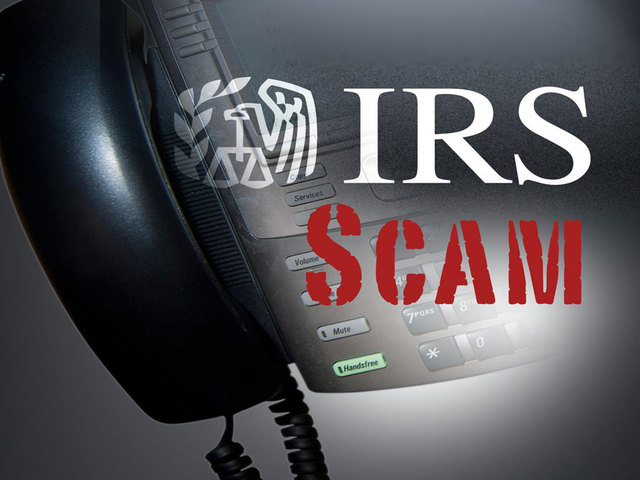PHOTO: Sen. Schumer this week warned constituents that a phone scam targeting New Yorkers is “now spreading like wildfire.” Photo Courtesy of the Better Business Bureau
By Michael V. Cusenza
U.S. Sen. Charles Schumer (D-N.Y.) this week urged federal law enforcement agencies to investigate the source of a specific phone scam that appears to be increasingly targeting New Yorkers in the five boroughs and on Long Island, while continuing to plague people across the country.
On the calls, Schumer said, individuals posing as Internal Revenue Service agents claim that the person owes thousands of dollars to the IRS. Scammers threaten that if an amount is not paid right away the person on the other end of the call could soon be arrested or forced to appear in court, a tactic to which seniors are often especially vulnerable.
Schumer said there could be a coordinated focus to target New Yorkers, and that’s why the Federal Bureau of Investigation should move fast to identify the source of the calling scam, shut down the operation and hold accountable the perpetrators. Schumer is urging the FBI to act immediately on behalf of New Yorkers and cited calls to his own office, which have also increased.
New York’s senior senator also called on money transfer companies, such as MoneyGram and Western Union, to better protect consumers by issuing a specific warning about this scam.
“There is no doubt about it, this IRS impersonation phishing scam is spreading like wild fire and burning an increasing number of vulnerable New Yorkers, especially our seniors,” Schumer said. “That is why I am asking the FBI to ramp up their efforts to identify the source of this fraud and to lower the legal hammer on the scammers. The scammers who perpetrate this hoax lie to vulnerable people, browbeat and intimidate them, dupe them into wiring them money and steal their hard-earned savings. They need to be rooted out and thrown behind bars. And the money transfer companies – that are being used by the bad guys to steal this money – should work with the FBI to better educate their customers about scams like this, and give them better ways to report it and avoid it.”
Special Agent Stephanie Shark, spokeswoman for the FBI New York field office, told The Forum that such scams also provide reminders to people that they need to take precautions to protect themselves.
“[I]f anyone is asking for personal information on the telephone or online, they should exercise caution in providing this information without verifying the identity of the callers,” Shark said. “Fear is a powerful tool utilized by scam artists to push for information they are not entitled to. If you feel uncomfortable, or something doesn’t seem right, follow your instincts.”
Additionally, Shark recommended anyone who believes they are the recipient of a suspicious email or phone call, file a complaint with the Internet Crime Complaint Center at ic3.gov. Many of these phone scams are actually conducted via the Internet, she noted. IC3 is a reliable and convenient way to report information to the Bureau. The FBI works with federal, state, local, and international law enforcement, as well as regulatory agencies to receive, develop, and subsequently refer information for investigative and prosecutorial attention. They also identify trends and put out information for the public’s awareness.
Schumer added that, as of October, the Treasury Inspector General for Tax Administration received approximately 736,000 scam reports since October 2013. Nearly 4,550 victims have collectively paid nearly $30 million dollars as a result of the scam. The Consumers Union has estimated that $350 million is lost by Americans to phone scams each year.
michael@theforumnewsgroup.com

